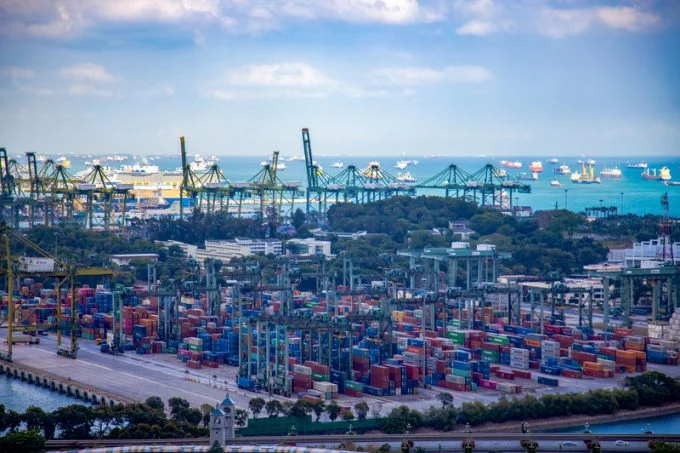
Shipping delays, higher freight rates: Ports in Asia, including Singapore, see heavy congestion
SINGAPORE : Shipping delays in Singapore have more than doubled in recent weeks, which observers said could mean higher prices for consumers. This comes as a shortage of container ships as well as port congestion have led to an impending supply chain crisis.
Port operator PSA Singapore said it is working closely with shipping lines to mitigate disruptions, adding that it is communicating with vessels on their arrival times and volume information in advance. PSA said the volatility is likely here to stay, and that it will continue to ramp up capacity and smart technologies in their terminals.
IMPACT OF BIDEN’S BIG CHINA TARIFFS
The bottlenecks at Singapore are due to various factors, from the diversions caused by unrest in the Red Sea to Chinese exporters scrambling to ship goods ahead of trade curbs, said observers.
Earlier this month, the United States announced that it will raise tariffs on US$1 billion worth of imports from China, targeting strategic sectors such as electric vehicles (EVs), batteries, steel and critical minerals.
The tariff rate on EVs is set to quadruple to 100 per cent this year, while the one for semiconductors will surge from 25 per cent to 50 per cent by next year, said the White House on May 14. Chinese exporters are now in a mad rush to beat the looming trade restrictions.
Average container prices in China, which were already on an uptrend, have spiked even further by 88 per cent in the last two months. Typically, these ships take routes like the Strait of Malacca, where they will dock in Singapore. But the growing volume of vessels has caused heavy congestion. Currently, it takes around seven days for each vessel to be berthed, instead of one to two days previously.
So far this month, Singapore’s port has already received about 1,000 ships, compared with just 639 in April. Mr Tan Hua Joo, a container shipping market analyst at data platform Linerlytica, told CNA that port congestion is at an all-time high. “There isn’t a lot of spare capacity available to accommodate the increase in volumes,” he said. “Port users will therefore need to build in delays to their cargo movements and forecasts in the next few months.” As vessels remain at sea for longer periods of time, exporting countries are faced with a shortage of ships and container equipment.
RED SEA DISRUPTIONS
In a statement on Thursday, the Maritime and Port Authority of Singapore (MPA) said that Singapore is experiencing a “bunching” of vessels as a result of vessels being diverted away from the Red Sea.
“The diversion of vessels around the Cape of Good Hope has disrupted vessel arrival schedules at major ports around the world with off-schedule arrivals and has caused a ‘vessels bunching’ effect,” it said in response to media queries.“Since the beginning of 2024, Singapore has seen a significant increase in vessel arrivals.”
Container vessels are facing longer waits for berths as a result of this, the authority said. “While most container vessels are berthed on arrival, port operator PSA has worked with liners to adjust arrival schedules where feasible, and where this is not feasible, the average waiting time for container vessels is about two to three days,” it added.
MPA said that several container lines are also “discharging more containers in Singapore as they forgo subsequent voyages to catch up on their next schedules” while the number of containers handled per vessel has also increased.
Additionally, PSA has been helping some container lines manage their container stowage on board vessels “to facilitate expeditious discharge of cargo for their subsequent port calls”.
MPA said that it has been working with the Ministry of Transport (MOT), PSA and other industry players to prepare for higher numbers of vessel arrivals since late 2023.
“PSA has since added more manpower and container handling capacity to help alleviate the situation,” MPA said. “For instance, PSA has reactivated older berths and yards that have previously been decanted at Keppel Terminal.”
Three new berths at Tuas Port will also commence operations later this year, supplementing the eight existing berths there.
The authority said that other vessels calling in Singapore – about two-thirds of vessel arrivals – are not experiencing berthings delays, adding that there is currently no crowding in the country’s anchorages.
“MPA and PSA are collaborating closely with container lines and regional feeders to inform them about berth availability and advise on arrival times to reduce berthing delays,” MPA said.

